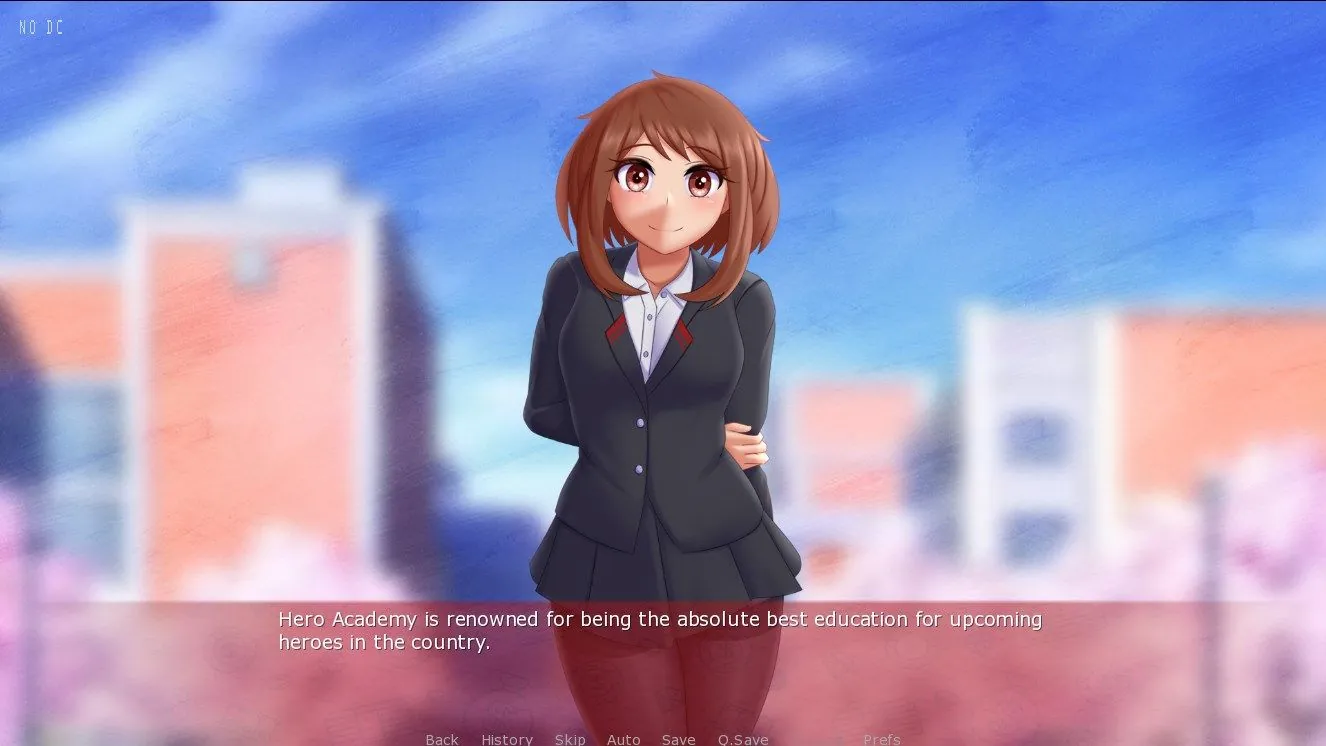
Lessons in Love
Play Lessons in Love
Lessons in Love review
Exploring the Characters, Events, and Player Choices in Lessons in Love
Lessons in Love is an immersive visual novel game that combines storytelling with interactive choices, focusing on complex characters and evolving relationships. This article explores the core aspects of the game, including its main character Sensei, the branching event system, and how player decisions shape the narrative. Whether you’re new to Lessons in Love or looking to deepen your understanding, this guide offers insights and practical advice to enhance your gameplay experience.
Understanding the Core Story and Characters of Lessons in Love
Let’s be honest—when you first boot up a visual novel, you expect a certain formula. A charming protagonist, a cast of love interests, and a straightforward path to romance. Lessons in Love throws that entire playbook out the window from the very first scene. 🤯 This isn’t just a dating sim; it’s a deep, often unsettling, and profoundly human exploration of memory, trauma, and connection, all masterfully woven into its Lessons in Love narrative.
At the heart of this experience is you, the player, stepping into the worn-out shoes of a single, pivotal figure. To truly grasp the game’s brilliance, you need to start by understanding the man at its center. The entire Lessons in Love story progression hinges on his journey, making him far more than a blank slate for your projections.
Who is Sensei? Character Analysis and Development
So, who is Sensei in Lessons in Love? He’s not your typical hero. When you meet him, he’s a mess—a high school teacher grappling with a fractured memory, a deep-seated sense of ennui, and a past that seems to slip through his fingers like smoke. He’s cynical, often selfish, and his internal monologue is a chaotic stream of self-doubt and pop culture references. He’s the Lessons in Love Sensei, and his classroom is a crucible for his own personal demons. 😵💫
His primary motivation isn’t initially noble. It’s survival, both mentally and emotionally. He’s trying to piece together who he is while navigating the intense, and sometimes overwhelming, relationships with his students. This is where the genius of the Lessons in Love character development shines. The Sensei you control at the start—apathetic, detached, and lost—is not the man he is destined to remain.
His evolution is directly tied to the player’s engagement. As you make choices, you’re not just picking dialogue options; you’re actively rebuilding his personality. Will you encourage his more self-destructive tendencies, or guide him toward a path of responsibility and care? I remember one playthrough where I leaned hard into his cynical side, and the resulting isolation he felt was palpable and, frankly, a bit heartbreaking. 💔 Conversely, choosing to be genuinely present for the students, even when it was difficult, slowly chipped away at his armor, revealing a capacity for empathy he didn’t know he possessed. The Lessons in Love Sensei is a mirror, and his development is a reflection of the choices you, the player, deem important.
Key Supporting Characters and Their Roles
The Lessons in Love characters are not mere trophies to be won; they are the catalysts for the entire story. Each student is a complex individual with their own intricate web of secrets, fears, and desires. They are the anchors that tether Sensei to reality and force him to confront aspects of himself he’d rather ignore. 🙏
For instance, a character like Ami might initially seem like the cheerful, energetic one, but her story peels back layers of intense pressure and a desperate need for validation. Another, like Sana, presents a cool, collected exterior that masks profound vulnerability. Interacting with them isn’t just about unlocking romance routes; it’s about untangling the threads of a shared, complicated history that Sensei can’t fully remember. The depth of these Lessons in Love characters is what elevates the game from a simple story to an immersive psychological experience.
To help keep track of this vibrant and complex cast, here’s a quick overview of some key figures:
| Character | Key Traits | Narrative Role |
|---|---|---|
| Ami | Energetic, People-Pleaser, Insecure | Represents the pressure of expectations and the fragility of identity. |
| Sana | Intelligent, Composed, Secretive | Acts as a grounding force and a keeper of hidden truths. |
| Yumi | Rebellious, Blunt, Protective | Challenges authority and forces confrontations on difficult topics. |
| Maya | Observant, Philosophical, Detached | Offers cryptic wisdom and questions the nature of reality itself. |
These characters don’t exist in a vacuum. Their interactions with each other and with Sensei create a dynamic ecosystem where every relationship feels real and consequential. Getting to know them is the key to understanding the world of the game. 👥
How the Story Progresses Through Player Choices
The Lessons in Love story progression is a masterclass in non-linear storytelling, and it is almost entirely driven by your Lessons in Love player choices. Forget simple “nice” or “mean” dialogue options. The decisions you face are often nuanced, morally ambiguous, and deeply impactful. You’re not just choosing what to say; you’re deciding what Sensei thinks, what he focuses on, and which memories he pursues.
Pro Tip: Don’t reload a save just because a choice leads to an uncomfortable outcome. Some of the most powerful character growth in Lessons in Love comes from dealing with the consequences of a “bad” decision. 🎭
These Lessons in Love player choices directly influence:
* Relationship Dynamics: A seemingly minor choice to spend time with one character can lock you out of an event with another, altering the group’s dynamic permanently.
* Sensei’s Mental State: Your choices can either soothe his anxiety or send him spiraling into a depressive episode, which in turn affects how he interacts with everyone.
* The Unfolding Mystery: The core plot, centered on the strange phenomenon affecting the city and the school, unravels at a pace dictated by your curiosity and the connections you foster.
I learned this the hard way. In one early playthrough, I consistently avoided a particular character’s problems, deeming them too dramatic. This didn’t just make that character distant; it created a ripple effect. I missed crucial clues about the overarching mystery, and Sensei remained more ignorant and powerless as a result. The game brilliantly demonstrates that in life—and in Lessons in Love—inaction is itself a choice with profound consequences. The Lessons in Love narrative is a tapestry, and you hold the needle. Every thread you pick up or ignore changes the final picture.
Ultimately, Lessons in Love is more than a game; it’s an experience that stays with you. It challenges you to look beyond the surface, to sit with discomfort, and to understand that building true connections—with others and with oneself—is a messy, complicated, but ultimately beautiful process. Your journey with the Lessons in Love Sensei and the unforgettable cast of Lessons in Love characters is one you will undoubtedly carry with you long after you close the game. 💖
Lessons in Love offers a rich narrative experience driven by well-crafted characters and meaningful player decisions. Understanding the protagonist Sensei and his relationships is key to navigating the game’s story. By engaging with the event system and making thoughtful choices, players can unlock diverse story paths and deepen their connection to the game world. Dive in and explore the many facets of Lessons in Love to fully appreciate its storytelling depth.





















